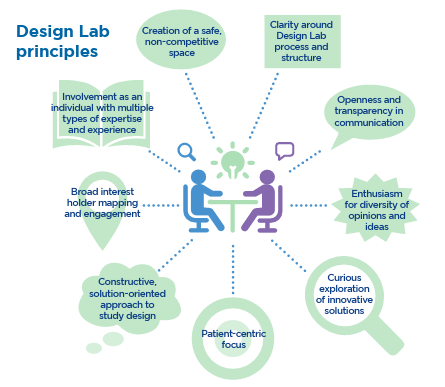Overview
The Tufts CTSI Small Grants to Advance Translational Science (S-GATS) Program provides proof of concept funding for innovative and collaborative projects aimed at advancing the science of translation. The program seeks to address fundamental obstacles commonly encountered in translational research across various diseases and health conditions, while also encouraging the exploration of novel opportunities and pathways to transform the way that research is done.
The S-GATS Program encompasses the broad scope of translational science research, welcoming projects that address specific translational challenges—such as inaccurate predictions of drug toxicity or efficacy, poor data interoperability, and ineffective clinical trial recruitment—as well as those that seek to leverage untapped opportunities within translational science.
The primary goal of an S-GATS project is to advance translational research by addressing common barriers to translation and/or exploring novel opportunities. Successful applicants are expected to:
- Identify a Translational Challenge or Opportunity: Clearly define a translational challenge, roadblock, or opportunity that the project aims to address. This may involve addressing a known obstacle or exploring new pathways for advancement in translational science.
- Propose a Proof-of-Concept Study: Design a proof-of-concept study that demonstrates, in one or more use cases, an innovative and broadly applicable disease-agnostic and/or disease-universal research product(s). These products may include research methods, technologies, operational processes, medical treatments, and behavioral interventions, and should have the potential to significantly enhance translation of pre-clinical, clinical, health services, and policy research into tangible improvements in clinical care and health outcomes.
- Develop a Dissemination and/or Implementation Plan: Provide a preliminary strategy for disseminating and/or implementing the developed product(s), ensuring that other investigators, clinicians, and key interest holders can effectively adopt and utilize the product(s) in their own translational research or clinical practice.
Award Information
- One-year awards of up to $50,000 in direct costs.
Eligibility
- Applications must designate a Principal Investigator (PI) with a primary appointment or position at a Tufts CTSI partner or collaborating organization.
- Medical residents, fellows, post-doctoral fellows, or medical students are not eligible to serve as PIs. However, they may be included in key personnel along with collaborators not affiliated with Tufts CTSI.
Application Process
- RFAs are issued annually in late summer (August/September).
- A pre-application Letter of Intent (LOI) is required and reviewed. Only invited applicants may submit full proposals.
- Prospective applicants must consult with the program team before submitting an LOI.
Additional Information
- View the most recent RFA and information session slides.
- We encourage you to learn more about the goals and principles of translational science on the website of the National Center for Advancing Clinical and Translational Science (NCATS).
Questions?
We are here to help. Please contact us at sgats@tuftsmedicine.org with any questions or to schedule a virtual consultation.
Aviva Must, PhD, Program Director
Michael T. Chin, MD, PhD, Senior Advisor
Nadia Prokofieva, MSSc, Senior Project Manager



